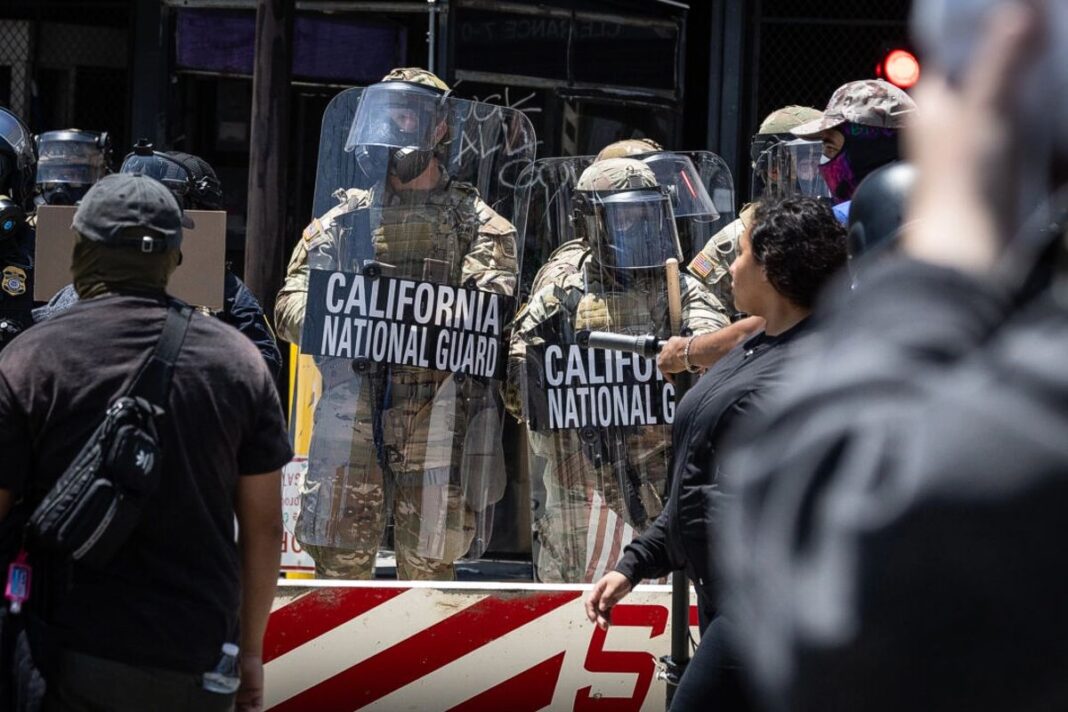President Trump successfully campaigned against the Administrative State. Now, he is in the process of dismantling it. The question is what is its replacement. His campaign gave the impression that it would lead to a smaller, less active, and more efficient government. However, Trump is transitioning the U.S. into State Capitalism, an economic system in which the state, for political purposes, actively participates in economic production as a means of accumulating control of the private sector.
On the first day of his second term as President, Trump orchestrated a radical transformation of the federal government, surpassing all expectations. His transition circumvented the traditional legal structure, which typically relied on legislation and the Administrative Procedure Act for changing the substance of laws. Trump swiftly transitioned a nation plagued by regulatory paralysis into a realm of countless one-man decrees, utilizing Executive Orders and Emergency Declarations. Then, without hesitation, the President minimized the regulatory reform part of his agenda and steered the nation toward State Capitalism. This unexpected move is occurring with unprecedented speed for a country not in crisis.
The tragedy of the transition from the Administrative State to State Capitalism is that, for the last 75 years, presidents have ignored Congress in their construction of the Administrative State. Now, President Trump is ignoring Congress in his decision-making process, which is contributing to the formation of State Capitalism. Why he is excluding Congress is incomprehensible to anyone who understands the scope of powers granted to Congress by the Constitution. More vexing is how Congress is content to be ignored. If President Trump continues without Congress, his entire reorganization of the federal government and his economic policies that rest on worldwide tariffs will have a short shelf life, as they are not being built on a legal foundation.
Trump issues a staggering list of commands.
In less than a year, Trump has issued 187 dictates (Executive Orders and Emergency Declarations). Some of his dictates properly involved the federal workforce, procurement, and regulatory activities that he manages as the nation’s chief Executive. However, a large number of his directives target private enterprises, industrial operations, and even corporate logos.
For example, Trump issued targeted Executive Orders at five prominent law firms that represented clients adverse to the positions of his first administration. He alleged that they were detrimental to the nation’s security and practiced discrimination. He ordered the revocation of their security clearances and sought damages from them.
On trade and tariff issues, which are the specific responsibility of Congress, he imposed significant tariffs on most products entering the United States, all without consulting Congress. An excellent example of the international and economic risks the Trump administration is creating is the August 29, 2025, ruling by the U.S. Court of Appeals for the Federal Circuit in V.O.S. Selections vs. Trump. The case involves Trump’s worldwide reciprocal tariffs, which range from 10% to 50% on countries with which the U.S. has a trade deficit and a 10% tariff on all other countries. The court ruled that the International Economic Emergencies Powers Act “bestows significant authority on the President to undertake a number of actions in response to a declared national emergency, but none of these actions explicitly include the power to impose tariffs, duties, or the like, or the power to tax.”
The administration is appealing the ruling to the Supreme Court. A loss could be devastating to the administration. The Trump administration anticipates a severe economic fallout if the Supreme Court upholds the appeals court decision. As of August 29, 2025, Trump has collected $157 billion through these tariffs. The courts could mandate the return of that entire amount.
On TikTok, Congress passed a law mandating that the social media site be sold to an American company or be banned from operating in the country. Trump, without congressional approval, suspended the enforcement of the legislation. In effect, he nullified a law of Congress.
Trump embarks on State Capitalism.
In Trump’s pursuit to control every aspect of enterprise and culture in the U.S., he leverages, or threatens to use, his executive and regulatory powers to impose financial conditions on private transactions to benefit the federal government. Numerous of his deals fit into the definition of State Capitalism.
Nippon’s acquisition of U.S. Steel. Before approving Nippon Steel’s (a Japanese company) acquisition of U.S. Steel, the Trump administration demanded a ‘golden share.’ This share would give the administration a veto over plant closures and employee layoffs, as well as a promise that Japan would invest $1.5 trillion in the U.S. and that Trump would direct the investments. A ‘golden share’ is a mechanism developed by the Chinese Communist Party, which requires companies to surrender certain powers to the government, thereby allowing it to exert control over key industries.
Nvidia and AMD are charged a fee to export chips to China. As a condition of obtaining an export license to sell computer chips to China, Trump secured a fee of 15% of the sales of Nvidia and AMD chips that the companies sell in China. The fee imposed on the two companies is viewed by many as an export tax, which the U.S. Supreme Court has ruled unconstitutional on several occasions.
An equity stake in Intel.
The Trump administration and Intel have agreed that the federal government will take a 10% equity stake in the company in return for converting its $8.9 billion grant and loan to Intel into stock. The Chips and Science Act is a federal law that provides $280 billion in subsidies to the semiconductor industry and to foster scientific research. Of that amount, $52 billion was allocated specifically to the semiconductor industry to boost domestic production.
Future deals.
Currently, Fannie Mae and Freddie Mac are two of the largest purchasers of home mortgages. They are government-sponsored enterprises valued at around $500 billion. Both are in federal conservatorship. The Trump administration is considering the sale of 5-15% of the two companies. If this sale goes through, the federal government would receive funds from the sale of the stock and continue to control the two companies, potentially influencing the U.S. mortgage market and homeownership.
Trump’s Secretary of Commerce reported that the Secretary of Defense, Pete Hegseth, is considering acquiring a stake in Lockheed-Martin, a defense contractor.
Kevin Hassett, Director of the National Economic Council under Trump, told reporters, “The U.S. could take further stakes in companies similar to its equity investment in Intel.” Hassett also mentioned Trump’s plan to set up a sovereign wealth fund, which will require securing a stake in other industries.
The Secretary of Transportation announced that the Trump administration will assume management control of Washington’s Union Station from Amtrak. Trump also assumed control of the Kennedy Center for the Performing Arts and named himself chairman of the board.
While the lawfulness of the President’s actions is being litigated, many complex policy and legal questions remain concerning the treatment of the private sector based on federal ownership interests:
- How many companies can the federal government control before the nation is irrevocably changed into a socialist country?
- How does the federal government remain a neutral regulator?
- Will all companies receiving Chips and Science Act subsidies be required to give an ownership stake to the federal government?
- Can a President without Congressional authorization negotiate an export fee on any company that sells products to other countries?
- Can a President treat companies in which the U.S. has an ownership stake differently in the federal permitting process?
- Can the U.S. create markets for these companies?
- Can the federal government ban imports that would compete with these companies?
- Can Congress grant special tax breaks to these companies?
- Does the federal government owe these companies due process when making business decisions?
These many unanswered questions raise a most fundamental question. Do President Trump and Congress want the federal courts to have the final say in determining the economic and trade policies of the nation?
If Trump wins, he will likely impose a fee, or a “golden share,” on most private sector transactions needing federal approval. If the private sector convinces the courts that these fees and “golden shares” are unconstitutional or lacking statutory authority, the court could void all of Trump’s agreements. By sidelining Congress, President Trump may avoid the irritation of dealing with a dysfunctional institution, but he places his second term in the hands of the courts. If this governing structure is to replace the Administrative State, it may be more unstable than regulatory sclerosis.
William L. Kovacs, author of Devolution of Power: Rolling Back the Federal State to Preserve the Republic. It received five stars from Readers’ Favorite. His previous book, Reform the Kakistocracy, received the 2021 Independent Press Award for Political/Social Change. He served as senior vice president for the U.S. Chamber of Commerce and chief counsel to a congressional committee. He can be contacted at wlk@ReformTheKakistocracy.com
.







